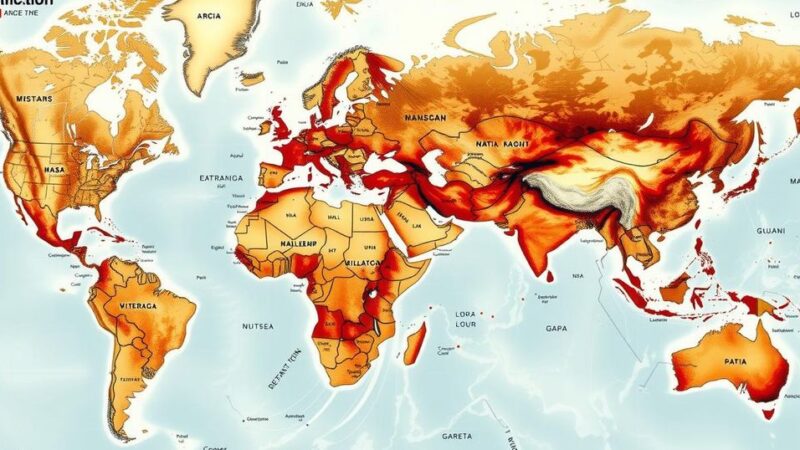Human Rights Watch has recommended that Kyrgyzstan and Tajikistan center local populations’ human rights in their border agreement, advocate for justice for war crime victims, and promote human rights respect to ensure peace and stability in the region, as tensions have historically led to violence.
Human Rights Watch (HRW) has urged Kyrgyzstan and Tajikistan to prioritize the human rights of local populations in their negotiations to resolve the protracted border crisis. The organization emphasized the importance of ensuring that victims of war crimes from the 2022 conflict receive justice and called for investigations into alleged violations of human rights and international humanitarian law. Furthermore, HRW advocated for initiatives aimed at promoting human rights, including reducing hate speech among communities.
Hugh Williamson, HRW’s director for Europe and Central Asia, stated that lasting peace necessitates rebuilding trust through respect for human rights, particularly among border communities, as well as addressing past injustices. Both Kyrgyzstan and Tajikistan have been accused of committing war crimes during the 2022 conflict, in which at least 37 civilians lost their lives and thousands were displaced. Additionally, the previous conflicts in 2021 also resulted in civilian casualties.
A significant agreement was reached on March 13, 2025, when leaders from both nations signed and their parliaments ratified a border deal. This agreement aims to resolve the longstanding territorial disputes by reopening the 1,000-kilometer border. The accord includes commitments to share resources, demilitarize the border area, and exchange equal sections of territory. HRW has urged both states to ensure compliance with this agreement and to provide local populations with sufficient access to essential services such as education, water, and housing.
In support of this agreement, UN Secretary-General António Guterres described it as a “historic achievement.” The border had remained undemarcated since the dissolution of the Soviet Union, leading to periodic clashes over vital farming resources in Tajikistan and Kyrgyzstan’s Batken region. Large-scale violence only erupted in 2021, highlighting the urgent need for resolution.
In summary, the call by Human Rights Watch for Kyrgyzstan and Tajikistan to incorporate human rights considerations into their border agreement is pivotal for achieving lasting peace. The focus on justice for victims and the need for rebuilding trust among communities is crucial in moving forward. With the recent deal ratified, it is essential that both governments adhere to their commitments and ensure rights and resources for affected populations.
Original Source: www.jurist.org






